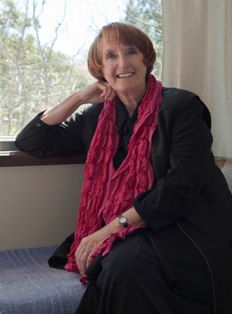
Meet Pamela Rushby : Book Links 2023 Award for Children’s Historical Fiction Shortlist
There are four brilliant writers on this year’s Book Links Children’s Historical Fiction Award Shortlist:
Felice Arena : The Unstoppable Flying Flanagan, Katrina Nannestad : Waiting for the Storks, Pamela Rushby : Interned, Claire Saxby : The Wearing of the Green
Each one has kindly agreed to answer a few questions about writing historical fiction for StoryLinks.
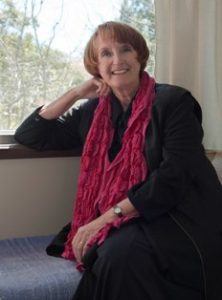 Here we feature Brisbane author Pamela Rushby who has written many historical novels for children, including The Secret Battle, The Mummy Smugglers of Crumblin Castle, The Ratcatcher’s Daughter, Flora’s War, Lizzie and Margaret Rose and The Horses Didn’t Come Home.
Here we feature Brisbane author Pamela Rushby who has written many historical novels for children, including The Secret Battle, The Mummy Smugglers of Crumblin Castle, The Ratcatcher’s Daughter, Flora’s War, Lizzie and Margaret Rose and The Horses Didn’t Come Home.
Her novels are characterised by appealing characters that resonate with young readers, an easily accessible writing style and lots of historical detail – all the result of careful research. I have often heard Pam say that there is no need to invent anything as the world is full of fascinating facts and true stories that sound made up but are totally real. My favourite is the mummy unwrapping parties held by Victorians as a cultural amusement that featured in The Mummy Smugglers of Crumblin Castle.
Pam has been shortlisted for INTERNED, the touching story of two girls from very different backgrounds who meet in an internment camp for Germans in Australia during the Great War.
Judges’ comments: Set during the Great War at an Australian internment camp, we experience life as lived by two very different girls who are brought together by music, heritage, loneliness, and discrimination. With no unnecessary frills Rushby offers her readers a realistic and immersive depiction of a period in Australian history often overlooked.
Pamela loves to shine a light on little-known events in history and Interned is no exception. The reader is shown what life was like for German descendants during the early stages of the war and the prejudices they faced on a regular basis as well as what life was like in the fairly relaxed internment area of Bornabba.
With no unnecessary frills, Rushby stays true to this challenging period of Australian history, showing the harsh realities of living in that era. Reading the book through the eyes of two very different girls highlights the contrasts in how families were treated depending on their background. As Gretta and Tilly develop empathy for and understanding of each other and their different situations so does the reader.
While researching this book, what is something you learnt that particularly intrigued or surprised you?
Two things. First, I was very surprised to find out that when war broke out, German expats were rounded up from places like Singapore, Hong Kong, Ceylon, Fiji, New Guinea and sent to Australia to be interned. I already knew some Germans in Australia were interned, but had no idea that others were sent from overseas. And that these included families with children. (I discovered this on a small island off Singapore, where there is a shrine to the ‘German girl’. A German family was living on the island in 1914, growing coffee. When British soldiers came to arrest them, the 18-year-old daughter panicked and ran off into the jungle. They searched, but couldn’t find her. Eventually locals discovered her body at the base of a cliff. They buried her and left small offerings and eventually a shrine grew up, and it’s still there today. This interested me, I did some research, and found that many German expats living in British colonies had been arrested and interned.)
Second, I was intrigued to read the (unpublished) war diary of a German woman who was interned with her family. Her husband was a ship’s captain; she and their two little daughters had come with him on a trip to Australia. War broke out, the ship was held in Brisbane, and finally the whole family was interned in NSW. Finding this source was pure gold!
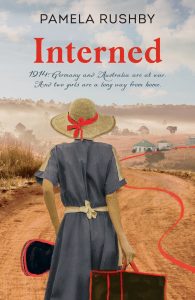 While researching for the book, did you learn anything that truly shocked you or were you already aware of much of the history?
While researching for the book, did you learn anything that truly shocked you or were you already aware of much of the history?
I knew a lot of the history, but what shocked me (and was the reason I wrote the book) was that children were interned. And that they had such a difficult time, especially trying to access education. Nothing much changes …
Your books have such distinct main characters, with their own personalities, quirks and flaws. What is your process for crafting characters that are all so different to each other? How do you decide if your main character will be a boy or a girl?
Boy or girl? They just tell me! I start thinking about a main character and they appear. Their personalities, quirks and flaws develop as the story needs them to. And they usually are girls – I don’t know why. Though, sometimes, it’s circumstances. For example, another book, The Secret Battle had to have a boy, because I needed to have a character who would be out in the streets on a regular basis, and a newspaper boy was an obvious choice. For Interned it was a girl (Tilly) – at that time, it would be a girl who was expected to stay home and take care of her mother.
If you had to pick, which character do you think is the most like you in the book?
I don’t think any of them are much like me! I suppose any writer includes some character traits of their own – but equally, it might be something I’ve noticed in people I know. (Not that I’d ever tell them!)
One notable aspect of this book was the compassionate representation of undiagnosed mental illness. What do you hope readers will gain by reading about the character of Tilly’s mother?
How the family accept her for what she is. They love her, and care for her, even though they can’t do much to help her. They don’t resent how their lives have to be disrupted to accommodate her. She is what she is.
You clearly had several options when it came to how this story would end. Did you know all along what would happen to Gretta and Tilly after the war, or did you only make that decision at some stage during the writing process? Why did you choose those particular outcomes?
I always know what will happen at the end even before I begin writing. (Control freak: I have a chapter outline I work to.) However: in this case the ending isn’t the one I planned. I had a Very Sad (and, to my mind, quite logical) ending, but the publisher wasn’t happy with it. It needed to have ‘some hope’. So the ending was changed.
What is the hardest part about writing a book that spans so specifically over 4 years of a very significant political and historical time period?
Really, about the same as any other book. Keeping the action going. Avoiding the dreaded ‘middle sag’. Yes, this was harder over a 4-year span, so I had to look for major events in the war, and big events in camp life, to keep the interest level up.
Music plays such a big part in this book, especially for Gretta, what was the significance of this, why is music so essential?
I knew I wanted Gretta’s character to have a very strong reason why she wanted Out of internment and to get on with what she’d planned for her life. I looked for a talent that she was driven to progress – could have been art, dance or academic study or perhaps sport (not so much for a girl in that period, though). From my research, I knew the internment camp had a choir and an orchestra, so music it was. Especially when I read a reference that an internee had made a violin out of metal. Now there was a scene!
Heritage and community are discussed a lot throughout the book. Does this stem from your own family living in Australia and coming from a German background at the same time that the book takes place?
As a child, I was hardly aware that my mother’s family background was German (apart from the name Schultz – dead giveaway. But there were many, many German surnames in that area). No one in the family spoke German – not even when elderly people visited my grandparents (I realise now they must have been my grandfather’s brothers and sisters). No one talked about Germany. It was only when I became aware that my grandfather’s family had come to Queensland on a sailing ship, when he was two years old, that I was interested. I think it was the ‘sailing ship’ that got me. So I assume my family was pretty much assimilated. We know of no incidents where they were singled out for discrimination. My uncle fought in WW2, and my grandfather was an air raid warden (we found his official tin hat being used as a water dish in the chook run!) But I know there were large communities with German background that kept up old traditions. And that during WW1 many were targeted.
Thank you, Pamela, for answering all these questions. You have given us some fascinating insights into writing historical fiction.
The winner of the Book Links 2023 Award for Children’s Historical Fiction will be announced at via zoom on 19th July. This is a free event and everyone is welcome to attend.
Details of the event are on the Book Links website.
Another enjoyable historical novel by Pam is her latest book is The Mud Puddlers. Find out more about Pamela Rushby and her books.
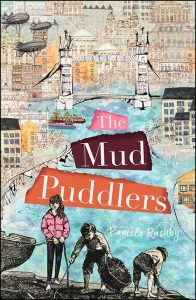
Comments
Sorry, the comment form is closed at this time.

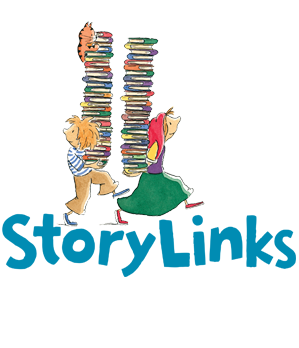

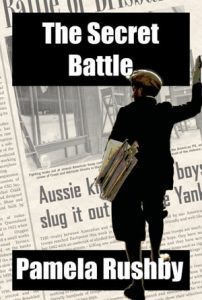
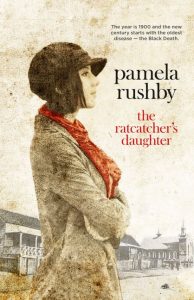
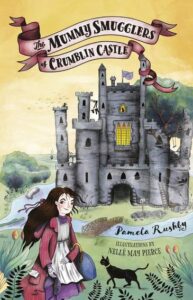
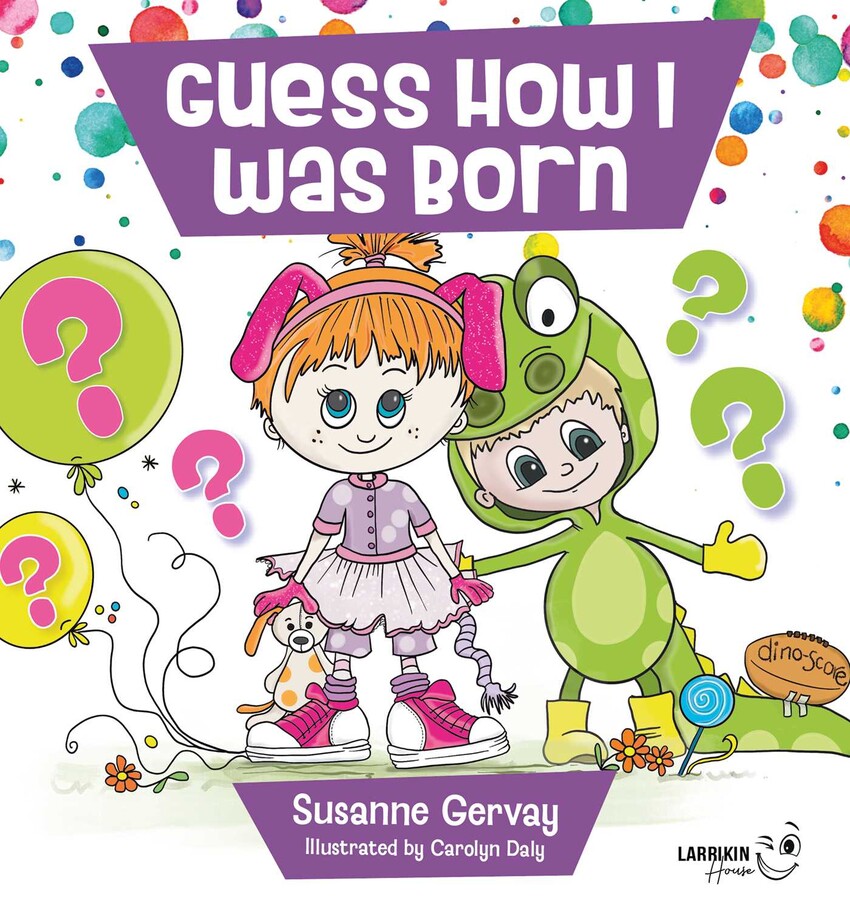

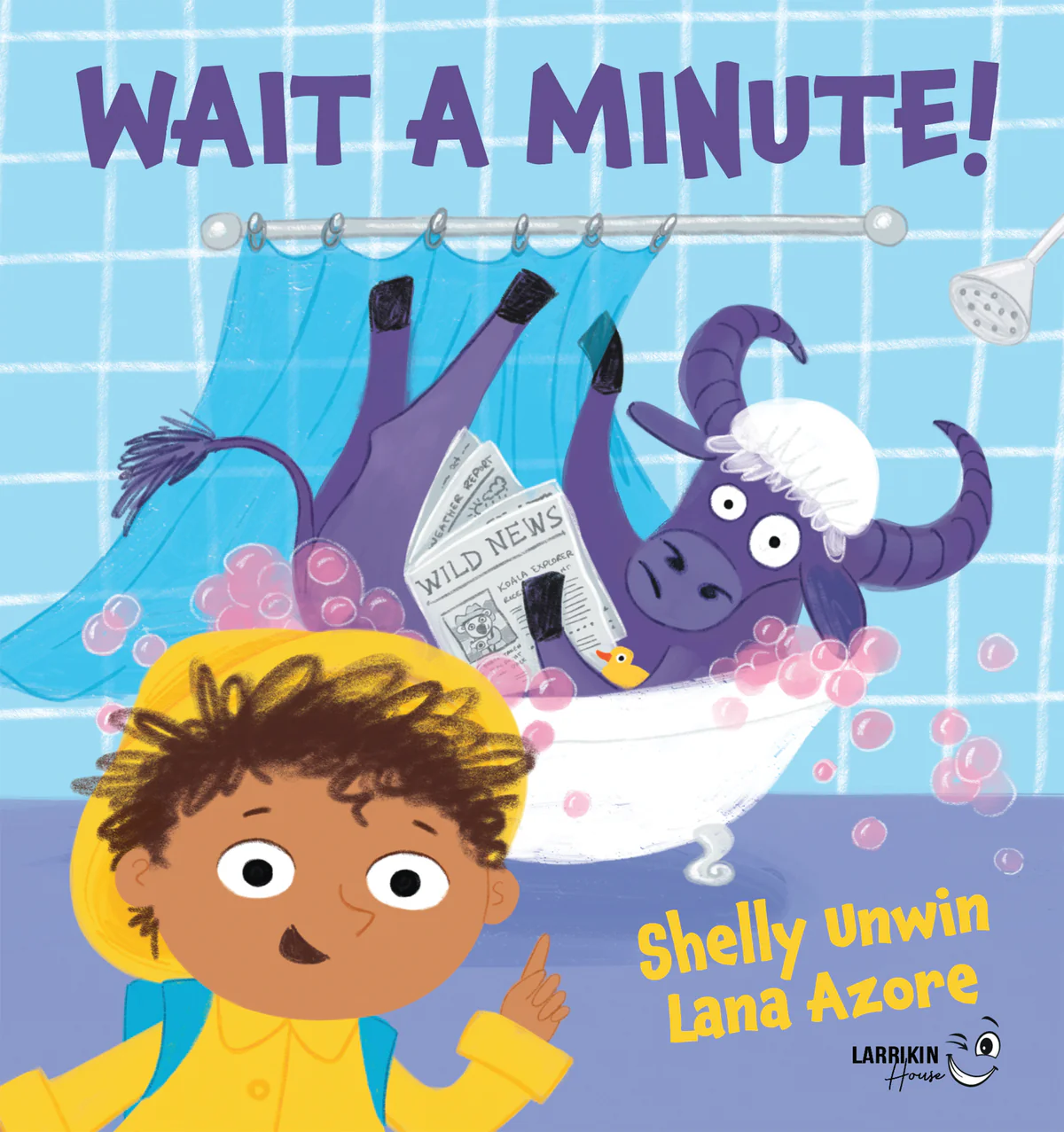

Pingback: Meet Claire Saxby: Book Links 2023 Award for Children’s Historical Fiction Shortlist – Story Links